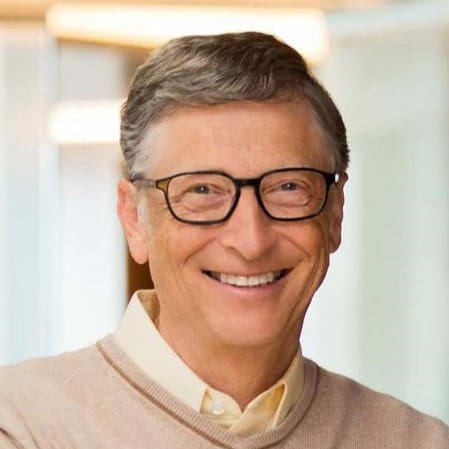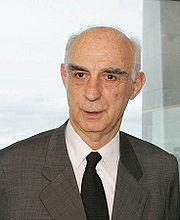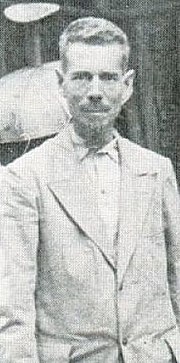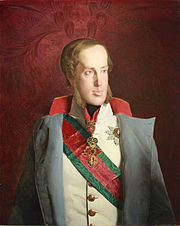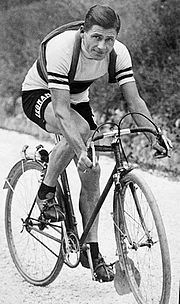Design
Design
Personality
Chart Properties
Your Cross represents the specific theme of your life. This cross embodies your unique potential & the lessons you're here to learn, providing a roadmap to fulfilling your life purpose.
We use the UTC birth time and date to do the calculations required to generate your Human Design chart.
Buy Tokens
Pay as you use, no expiry and no subscription required.Jacques Chirac's Biography
French politician who served as President of France from 1995 to 2007, elected in 1995 and again in 2002. Chirac was previously the Prime Minister of France from 1974 to 1976 and from 1986 to 1988, as well as the Mayor of Paris from 1977 to 1995. His long political career included service from the municipal to the national level in elected positions as well as political appointments.
Chirac was the only child of an aircraft company executive and a homemaker. He spent his Summers in the serene southwestern area of France visiting relatives. After working on a cargo ship for a Summer, he earned his degree in political science at the prestigious Institut d’Éudes Politiques.
In 1953, at age 20, he won a scholarship to study at Harvard for the Summer, working part time in a sandwich shop. He read history and poetry, and was fascinated by Chinese and Japanese civilizations. Though he had already met his future wife, Bernadette Chodron de Courcel, he had a romance with an heiress from South Carolina. She called him “honey child,” and chauffeured him in a white Cadillac. Chirac returned to Paris to marry Bernadette on 16 March 1956. Until his death, she was his biggest supporter.
After serving in the French army in 1956, he attended L’École Nationale d’Administration, the training ground for the elite of France’s civil servants. Thin, nervous and fast-talking, his political career was launched in 1962 when he landed a position in the office of Georges Pompidou, then Charles de Gaulle’s Prime Minister.
In 1967, he was elected to the national assembly and, a year later, was appointed to the Ministry of Economics and Finance. In 1972, he was named to the post of Minister of Agriculture and Rural Development and in 1974 he became Minister of the Interior. Soon after, his patron Georges Pompidou died and Chirac was named Prime Minister by the new President, Valéry Giscard d’Estaing. In 1976, Chirac resigned from office because of political differences with the President and formed his own party, the RPR (Rally for the Republic).
Elected Mayor of Paris the following year, Chirac held that post until 1995. In the meantime, his political influence on the increase, Chirac became Prime Minister for the second time, serving under President François Mitterand from 20 March 1986 until 12 May 1988.
As the mayor of Paris, Chirac overrode a ban on a 1987 Madonna concert after listening to her music. The singer later kissed him on both cheeks and donated the proceeds to AIDS research. In 1995 Chirac made a third attempt to become President, with his most trusted aide, his daughter Claude, stage-managing his campaign. Her hard work and his backing of the Madonna concert helped him capture the support of youthful voters. Chirac’s victory ended 14 years of socialist rule. As president, he had promised to reduce France’s 12% rate of unemployment by offering tax breaks to businesses hiring new employees.
Chirac enjoyed glamorizing his public persona, and remained close friends with Gregory Peck until the actor’s death. Despite his intelligence, he did not want to be viewed as an intellectual but a man of the people. Known as “le bulldozer” for his fierce determination, Chirac was not known for his diplomatic skills. “Chirac cuts through the crap and comes straight to the point…It’s refreshing, although you have to put your seat belt on when you work with him,” said an anonymous British diplomat cited in Wikipedia.
Chirac’s name was occasionally mired in scandal, including allegations of illegal party financing while he was Mayor of Paris and charges that he received favours from Saddam Hussein. But in 2002 he was seen as one of the most powerful political leaders in recent French history. As the leaders of the United States and Great Britain advocated war on Iraq, Chirac spoke for his country in mid-March 2003, insisting that “Iraq does not represent today an immediate threat that would justify an immediate war.” Although 80% of the French population praised his stance, by 2005 his political leverage had declined. By summer that year, his approval rate was as low as 39%.
In autumn 2005, an impoverished immigrant population, feeling disenfranchised by lack of employment and supportive government policies, began rioting and car-burning. Chirac’s campaign promises had not been fulfilled, and France’s high numbers of jobless and a sluggish economy were laid at his door. The President was accused of being slow to respond to the increasing level of violence that seemed to permeate the country.
Chirac’s personal life also saw ups and downs. Depression and anorexia plagued his eldest daughter Laurence, a physician, and in April 1990, she tried to commit suicide by jumping out of a fourth floor window. In 1992, Claude’s husband, Philippe Habert, was found dead from a sleeping pill overdose. The public was hardly aware that in 1979, the Chiracs adopted a 22-year-old woman named Anh Dao. She arrived in Paris via a city-sponsored program. Two years later, Chirac presided over her marriage to Hua Dong, a municipal employee. Their son, Bernard Jacques, is named in honour of his grandfather.
On 14 July 2002 in Paris, at about 9:55 AM MEDT, an extremely disturbed neo-Nazi made an assassination attempt, pulling a rifle from a guitar case and firing one round at Chirac’s motorcade before being subdued. The shooter was captured and identified as Maxime Brunerie, born 21 May 1977 in Evry, Essonne.
From 2-9 September 2005, President Chirac was hospitalized in Paris with a vascular problem affecting his eyesight. Though details remained sketchy, CNN reported that he had suffered a haematoma, a blood clot resulting from a break in a blood vessel wall. His health had been cited as one more obstacle for him to overcome if he decided to seek a mandate in 2007. In May that year he was succeeded in office by Nicholas Sarkozy.
Chirac was charged with embezzlement on 30 October 2009. He was found guilty of diverting public funds and abusing public confidence, and was given a two-year suspended prison sentence on 15 December 2011.
He died on 26 September 2019 in Paris, surrounded by his family (victim of anosognosia for several years).
Link to Wikipedia biography
Link to Astrodienst discussion forum
Jacques Chirac
Your Cross represents the specific theme of your life. This cross embodies your unique potential & the lessons you're here to learn, providing a roadmap to fulfilling your life purpose.
We use the UTC birth time and date to do the calculations required to generate your Human Design chart.

